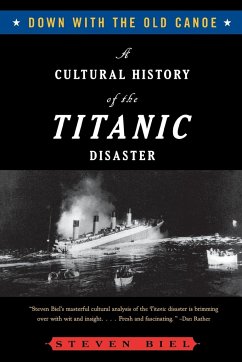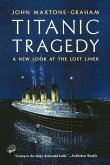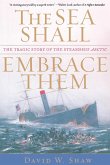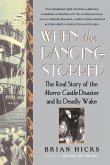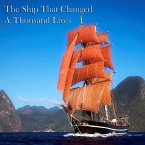Protestant sermons used theTitanic to condemn the budding consumer society ("We know the end of . . . the undisturbed sensualists. As they sail the sea of life we know absolutely that their ship will meet disaster."). African American toasts and working-class ballads made the ship emblematic of the foolishness of white people and the greed of the rich. A 1950s revival framed the disaster as an "older kind of disaster in which people had time to die." An ever-increasing number of Titanic buffs find heroism and order in the tale. Still in the headlines ("Titanic Baby Found Alive!" the Weekly World News declares) and a figure of everyday speech ("rearranging deck chairs . . ."), the Titanic disaster echoes within a richly diverse, paradoxical, and fascinating America.
Hinweis: Dieser Artikel kann nur an eine deutsche Lieferadresse ausgeliefert werden.
Hinweis: Dieser Artikel kann nur an eine deutsche Lieferadresse ausgeliefert werden.

